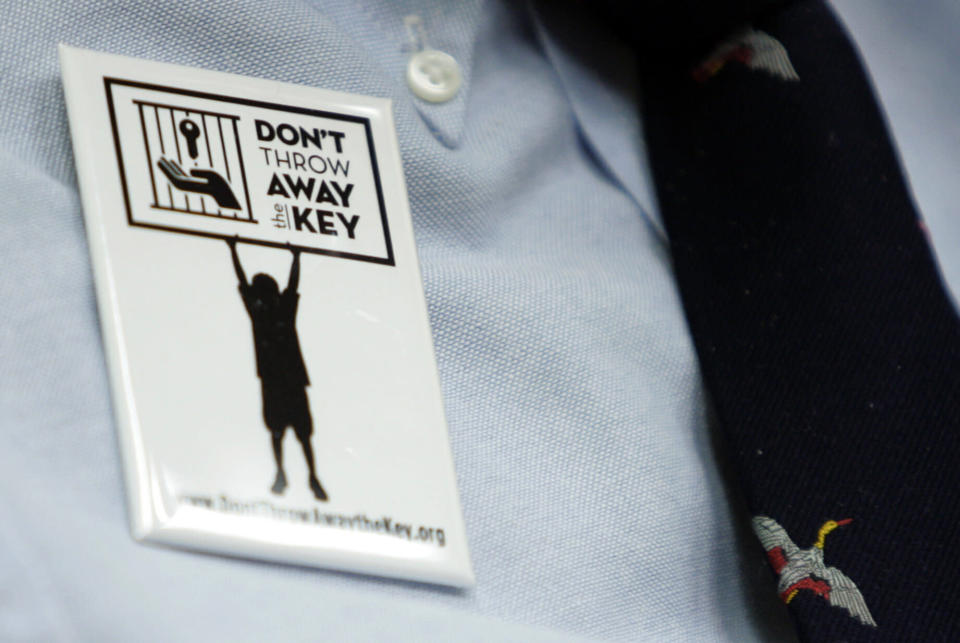Virginia Grants Parole Eligibility For People Sentenced As Children

Virginia Gov. Ralph Northam (D) signed legislation on Monday granting parole eligibility to juveniles after 20 years in prison, giving hundreds of people incarcerated for decades since they were children a chance at petitioning for release.
The bill ― HB35, which passed both legislative chambers last week ― gives parole eligibility to those in Virginia prisons who were under the age of 18 at the time they committed their crimes. The law also bans sentencing youths to life without the possibility of parole, making Virginia the 23rd state (plus the District of Columbia) to specifically bar the practice.
“We’ve seen an incredible uptick in state legislatures banning life without parole for kids, and until now, Virginia has been woefully out of step with that national trend toward youth sentencing reform, even when compared to states like Arkansas and West Virginia,” said Jody Kent Lavy, executive director of the Campaign for the Fair Sentencing of Youth (CFSY), a nonprofit dedicated to juvenile justice reform.
In light of recent U.S. Supreme Court rulings, several other states ― while not formally passing such laws ― have been conducting resentencing hearings for prisoners who, as youths, had received life sentences without parole possibilities.
The Virginia law takes effect on July 1, affecting more than 700 incarcerated people sentenced as children in adult court and giving them a chance to have their case reviewed for potential release. It was introduced by House Delegate Joe Lindsey (D).
“Children must be held accountable for their actions, and because they are fundamentally different from adults in their ability to assess risk and consequences, and their unique capacity for change, they should be held accountable in age-appropriate ways with a focus on rehabilitation and reintegration into society,” Lavy said.
Virginia is now one of 29 states (plus DC) that either ban or currently have nobody serving life without the possibility of parole in prison for an offense committed as a child. pic.twitter.com/18tt8NyvWJ
— CFSY (@theCFSY) February 24, 2020
While the law does not guarantee that any incarcerated person gets paroled, nor address systemic problems that can lead to youth being prosecuted as adults, Jana White of the Virginia CFSY said she believes it’s a step in the right direction.
“Those of us who have loved ones serving life sentences they were given as children in Virginia have been working on this for years,” White said in a statement. “There have been major obstacles and setbacks along the way, but we never gave up and this bill signing marks the beginning of a more just era for the children of this state. Our family members are filled with newfound hope today, which is something they haven’t experienced in a long time.”
Virginia had been one of six states that had not moved to implement U.S. Supreme Court decisions protecting youth from being sentenced to life without parole. In 2012, the high court held in Miller v. Alabama that the Eighth Amendment bans sentencing children to life without parole unless the judge has considered whether the offense “reflected unfortunate yet transient immaturity” or if the accused is “the rare juvenile offender whose crime reflected irreparable corruption.” In 2016’s Montgomery v. Louisiana, the Supreme Court held that the 2012 case is retroactive, meaning that it applies to children who were sentenced before Miller was decided.
BREAKING: As a result of today's new law in Virginia, Virginia's appeal of Lee Boyd Malvo's case, pending at #SCOTUS, will be dismissed. pic.twitter.com/uPaI8PELnz
— Chris Geidner (@chrisgeidner) February 24, 2020
Virginia’s new law led convicted sniper Lee Boyd Malvo to drop his request Monday for resentencing, which was pending before the Supreme Court. Malvo received four life sentences without parole as a juvenile for killing three people in Virginia alongside John Allen Muhammad during the sniper rampage in October 2002 that terrorized parts of the state, as well as Washington and its Maryland suburbs. He received six more life sentences without parole for six killings in Maryland.
Malvo, who was 17 at the time of the sniper shootings that also wounded several people, ad come under the sway Muhammad, who then was 41. Muhammad was executed in Virginia in 2009.
Malvo, now 35, sought a resentencing under the Miller and Montgomery rulings, and won approval for a new sentencing in Virginia from a federal district judge and a federal appeals court. Virginia’s attorney general then appealed to the Supreme Court, which heard oral arguments in the case last October with a ruling pending. But with Virginia’s new law, Malvo’s lawyers said the case is moot.
Love HuffPost? Become a founding member of HuffPost Plus today.
This article originally appeared on HuffPost.

 Yahoo News
Yahoo News 